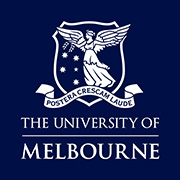Course Level
Master Degree (By Coursework)
CRICOS
108720D
Master of Digital Infrastructure Engineering
Digital infrastructure engineers work on the systems that connect the physical and digital world. They design the infrastructure for driving sustainable and resilient outcomes for businesses, projects, asset management, and ecosystems.
Campus | Duration | Fees | ATAR |
|---|---|---|---|
Parkville | Full-time - 3 years Part-time - 6 years | $142,251 | N/A |
Structure
In your first year (or equivalent) youll complete foundation engineering subjects. So if youre from a non-engineering background, youll bring your broad expertise and learn to apply it to the engineering discipline. If youve completed a Digital Infrastructure Engineering Systems major in your bachelors degree, plus the required maths and science subjects, youll receive credit for these foundation engineering subjects and start in second year.; In the second and third year of the program (or equivalent), youll focus on your chosen engineering discipline. As a digital infrastructure engineering student, your focus will be on digital solutions to monitor and manage our environment. Youll be involved in Smart Cities, the Internet of Things, and intelligent decision making out world.
Subjects
- Engineering Risk Management
- Applying Digital Infrastructure
- Imaging the Environment
- Sustainable Infrastructure Engineering
- Sensing and Measurement
- Digital Infrastructure Systems Capstone
- Integrating Digital Infrastructure
- Spatial Data Management
- Advanced Imaging
- Engineering Project Implementation
- Positioning Principles and Technologies
- Spatial Data Analytics
- Building Information Modeling
- Engineering Capstone Project Part 1
- Remote Sensing
- Engineering Capstone Project Part 2
- Information Visualisation
Entry requirements
- An undergraduate degree (or equivalent) in any discipline, with:
- The equivalent of 25 points (two subjects) of first year mathematics (any), and
- The equivalent of 25 points (two subjects) of first year science from physics, biology, chemistry, computer science, or geography, and
- A Weighted Average Mark (WAM) of at least 65% (or equivalent).
